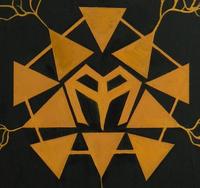It is better to be extraordinary and fail, then try to be ordinary and succeed.” So says Dan Holloway, whose day job might conjure images of methodical plodding rather than outlandish creativity: Holloway is the Head of Administration and Finance in Oxford’s Faculty of Linguistics, Philology and Phonetics. But as just a cursory glance at his CV and achievements shows, Holloway is also an award-winning author, poet, mental health campaigner and sportsperson.
Above all else, Holloway is a champion of creative thinking.
In 2017, Holloway won the Humanities Innovation Challenge, a competition jointly run by Oxford University Innovation and The Oxford Research Centre in the Humanities (TORCH) to identify and support innovative and entrepreneurial ideas emerging from the Humanities Division. He bagged first place thanks to his entry Mycelium, a creative thinking training tool.
The power of imagery
Holloway explains that Mycelium “is a card game that harnesses early modern thinking to promote creativity. In medieval times, people used to value the imagination and the way it can create links and what Ramon Llull, a 13th century philosopher, called ‘memory wheels’. But by Puritan times this way of thinking became associated with devilry. Using imagery, to learn, memorise things or do many other things besides, was replaced with a list-based, linguistic model.”

The suspicion of the imagination arose, says Holloway, “because the Puritans believed it had the power to make the things you pictured in your mind real. This way of thinking would last for centuries.” But Holloway, who obtained a first from Oxford in Theology and Philosophy and went on to take a Masters in Christian ethics, encountered during his studies neuroimaging research on the brains of creative artists and memory athletes. “What I saw lodged in my mind,” he says. “It suggested that a lot of what the supposed mediaeval heretics were doing was right on target.”
Building blocks
Specifically, studies revealed that using visual memorisation techniques promotes connections in an individual’s cortex area. Or, put more simply, using pictures works. “The more and varied those images are the better,” says Holloway. “They are the building blocks from which you will grow your creative imaginings.”
Mycelium draws upon Holloway’s research. Anyone can play it, though Holloway hopes it will be of benefit to companies and institutions looking for “a fun way for their people to develop their creative skills.”
Holloway, who is working with Oxford University Innovation to develop Mycelium, expects the game to be commercially released in August 2018. It is far from his sole project. This is a man, after all, who was the Creative Thinking World Champion in 2016 and 2017 (only person to win back to back titles), the World Intelligence Champion in 2000, and a Bronze medallist at 1998 World Mind-mapping Championships. His remarkable energy has seen him perform as a poet at the Royal Albert Hall and pen a novel, The Company of Fellows, which was voted ‘Favourite Oxford Novel’ by Blackwell’s readers. Holloway has also won a number of TV game shows, competed in ultramarathons and campaigned on mental health issues. You’d expect him to be busy, and he is, with current projects including writing a guide to creative thinking that will be one of the first books to be published using blockchain publishing technology. That’s not all: on 1 August, Rogue Interrobang, the company under whose auspices Holloway is developing Mycelium, will become OU Innovation’s second lean spin out company.
He won’t say it himself, but Holloway is not ordinary – and he’s well on the way to being both extraordinary and successful.